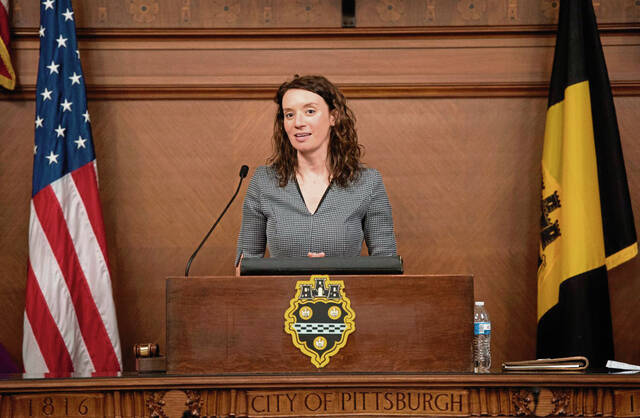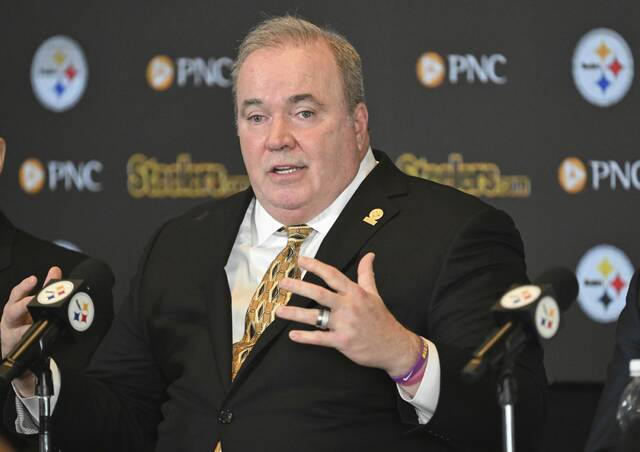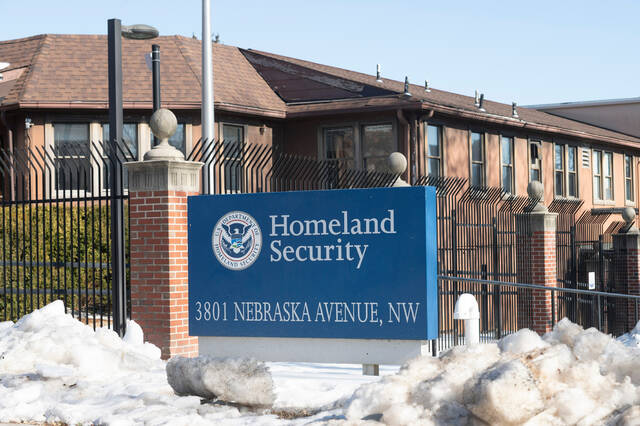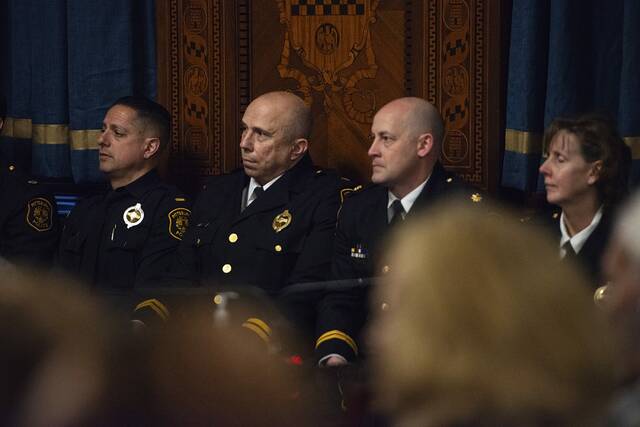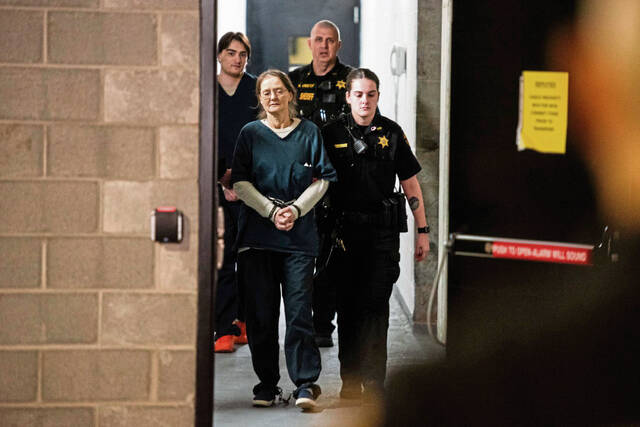Cash-strapped Pittsburgh could spend nearly $20 million more this year on overtime and holiday wages than it planned for, according to the latest warning about the city’s financial difficulties.
Controller Rachael Heisler released the alarming projections last week, which she said shows the city on track to spend between $14.7 million and $19.6 million more than budgeted on premium pay.
Data from the controller’s office shows the city has chronically struggled to keep its overtime spending within the budget, exceeding budgeted amounts every year since at least 2019.
“I think this continues to demonstrate issues with management,” Heisler said of the city’s continued overspending on overtime. “We predicted that this would be an issue last year when we saw the 2025 budget.”
City Councilman Bob Charland, D-South Side, was more succint.
“We’re clearly not learning a lesson,” Charland told TribLive Monday.
This year Pittsburgh has already spent about $5.5 million more than budgeted for premium pay, according to data from the controller’s office.
Over the first three quarters, the city spent nearly $43.5 million on overtime and holiday pay compared to the $38 million it budgeted for all of 2025.
Any shortfalls are made up from Pittsburgh’s reserves.
Frequent concerns
The controller and several council members have repeatedly raised concerns that the city has not been properly budgeting for premium pay, particularly in the departments of public safety and public works.
Officials have lambasted Mayor Ed Gainey’s proposed 2026 budget for again budgeting premium pay costs below what the city has spent in recent years.
That’s the case even as the 2026 NFL Draft, to be held in Pittsburgh over three days in April, is expected to demand extra overtime hours from public works and public safety employees.
Gainey’s proposed budget for next year — which will be inherited by his successor, who will take office in January — would increase premium pay budgets for EMS and firefighters.
Those budgeted figures, however, remain below what the EMS and fire bureaus actually spent last year for premium pay.
Olga George, a spokesperson for Gainey, said no one was available Monday to discuss the controller’s alert.
Previously, Jake Pawlak, director of the Office of Management and Budget, dismissed concerns about public safety overtime for the draft.
“I would say it’s relatively minimal in an operating sense,” Pawlak said.
Impact on workers
In some instances, Heisler said, the city will likely come in below budget on regular salaries because of staffing shortages.
That will likely be the case with the police bureau, she said, which will help absorb those extra overtime expenses.
The city’s police force has spent about $1 million more than its $15 million premium pay budget as of the end of the third quarter.
In places where the extra overtime expenses don’t even out with cost savings elsewhere, the extra cash will be pulled from the city’s fund balance, Heisler said.
Under Gainey’s spending plan, the reserve fund would shrink to about $136 million by the end of the year from today’s $168 million.
That figure is expected to drop to under $72 million in 2030.
Heisler on Monday reiterated concerns that the city is not properly funding its overtime needs or making operational changes that could drive down the need for workers to pick up extra hours.
There are two issues with overtime,” Heisler said. “One is the financial impact of overtime and two is the strain of overtime. The financial impact is sort of a bottom-line issue. And the strain of overtime is the impact it has on city workers.”
EMS expenses
By the end of the third quarter, EMS had spent over $6 million on premium pay. Its allocation for the year was about $3.6 million.
Jon Atkinson, who heads the EMS union, said he doesn’t think Gainey’s plan to increase the bureau’s overtime budget next year is adequate. Gainey’s budget would pump up the EMS premium pay budget line to nearly $6 million, but the bureau has spent more than that in the first nine months of this year and spent over $7 million last year.
Atikinson said the city had planned to hire part-time EMTs to curb the need for overtime. But those positions are not included in the 2026 preliminary budget Gainey released last month.
That likely means part-time EMTs will continue to be limited to working private events that are paid for by outside entities, Atkinson said. That would not have the same impact on reducing the need for overtime hours.
Atkinson said the city reduced mandatory overtime for paramedics by about a third since launching combination units, which allow for ambulances to be staffed with one paramedic and one EMT in certain situations where there are not enough paramedics. That strategy is employed only when there are no paramedics who voluntarily take the overtime hours.
“The operational changes we have made have reduced some overtime,” he said, though he does not believe the new tactics are driving down overtime enough to match the mayor’s budget proposal.
Burning through cash
The fire bureau in the first three quarters of the year spent about $848,000 more than its $16.5 million premium pay budget.
All of the public works divisions combined have about $2.2 million budgeted for premium pay. The department has spent over $3.2 million.
Heisler pointed out that department will likely see significant overtime demands in the lead-up to the draft next year.
After Gainey’s budget was released at then end of September, Pawlak said the administration was “not concerned” about extra public safety expenses associated with the draft.
The proposal would include an extra $300,000 in the Department of Public Works overtime budget for draft-related needs, Pawlak said.
Councilman Anthony Coghill, D-Beechview, said officials knew the city would spend more on premium pay than budgeted this year.
The city must budget overtime both for expected needs — like the St. Patrick’s Day parade, which requires additional public safety — and unexpected emergencies.
Coghill reiterated concerns that the city will find itself in the same spot again next year if officials adopt a budget that keeps overtime allocations at Gainey’s proposed amounts.
“The whole budget is unrealistic,” Coghill said.


